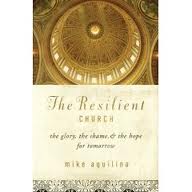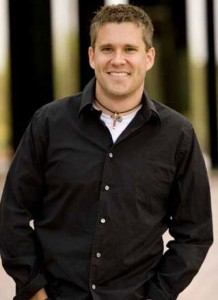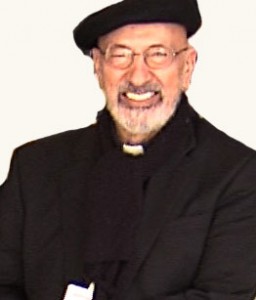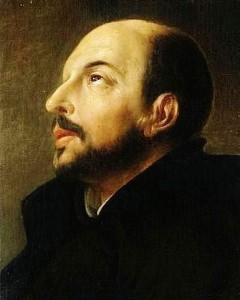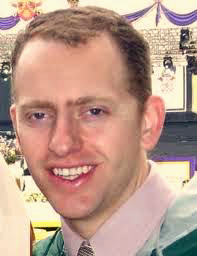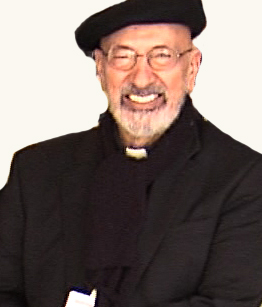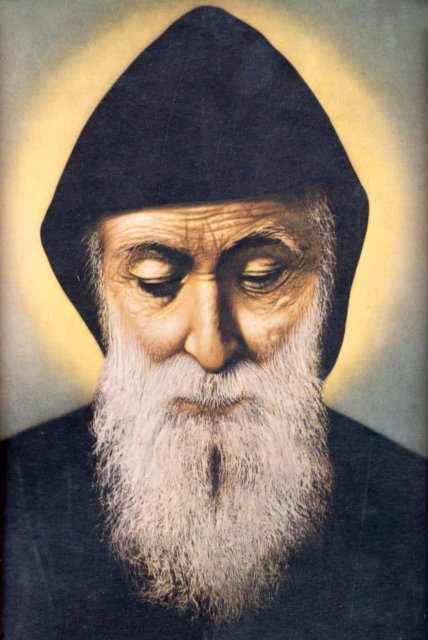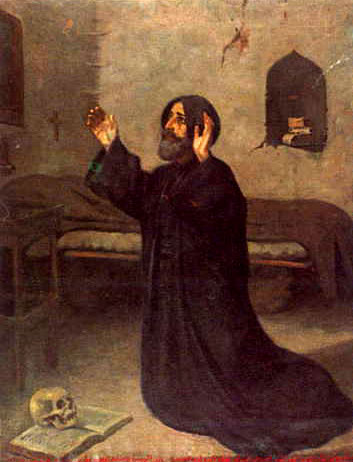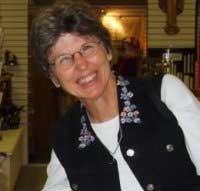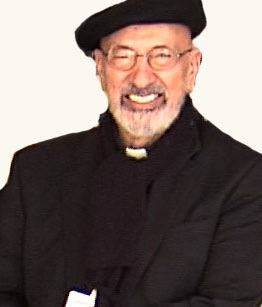 BKL 71 ” Building a Kingdom of Love” – “They all ate and were satisfied” Â
BKL 71 ” Building a Kingdom of Love” – “They all ate and were satisfied” Â
[powerpress]
Gospel MT 14:13-21
When Jesus heard of the death of John the Baptist,
he withdrew in a boat to a deserted place by himself.
The crowds heard of this and followed him on foot from their towns.
When he disembarked and saw the vast crowd,
his heart was moved with pity for them, and he cured their sick.
When it was evening, the disciples approached him and said,
“This is a deserted place and it is already late;
dismiss the crowds so that they can go to the villages
and buy food for themselves.â€
Jesus said to them, “There is no need for them to go away;
give them some food yourselves.â€
But they said to him,
“Five loaves and two fish are all we have here.â€
Then he said, “Bring them here to me, â€
and he ordered the crowds to sit down on the grass.
Taking the five loaves and the two fish, and looking up to heaven,
he said the blessing, broke the loaves,
and gave them to the disciples,
who in turn gave them to the crowds.
They all ate and were satisfied,
and they picked up the fragments left over—
twelve wicker baskets full.
Those who ate were about five thousand men,
not counting women and children.
Msgr. John A. Esseff is a Roman Catholic priest in the Diocese of Scranton. He was ordained on May 30th 1953, by the late Bishop William J. Hafey, D.D. at St. Peter’s Cathedral in Scranton, PA. Msgr. Esseff served a retreat director and confessor to Blessed Mother Teresa. He continues to offer direction and retreats for the sisters of the missionaries of charity around the world. Msgr. Esseff encountered St. Padre Pio, who would become a spiritual father to him. He has lived in areas around the world, serving in the Pontifical missions, a Catholic organization established by Bl. Pope John Paul II to bring the Good News to the world especially to the poor. Msgr. Esseff assisted the founders of the Institute for Priestly Formation and continues to serve as a spiritual director for the Institute. He continues to serve as a retreat leader and director to bishops, priests and sisters and seminarians and other religious leaders around the world.   To obtain a copy of Msgr. Esseff’s book by visiting here  Be sure to visit Msgr. Esseff’s website “Building a Kingdom of Love“
 To obtain a copy of Msgr. Esseff’s book by visiting here  Be sure to visit Msgr. Esseff’s website “Building a Kingdom of Love“
Tags: catholic, catholic podcast, catholic prayer, cathollc spirituality
This entry was posted on Sunday, August 3rd, 2014 at 7:27 am
You can follow any responses to this entry through the RSS 2.0 feed.
Episode 2- What is the relationship between religion and science?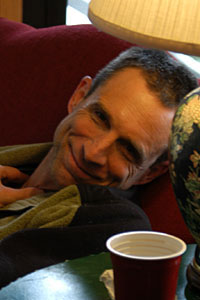
[powerpress]
Question 1 Article 2. Whether sacred doctrine is a science.
Objection 1:Â It seems that sacred doctrine is not a science. For every science proceeds from self-evident principles. But sacred doctrine proceeds from articles of faith which are not self-evident, since their truth is not admitted by all: “For all men have not faith” (2 Thess. 3:2). Therefore sacred doctrine is not a science.
Objection 2:Â Further, no science deals with individual facts. But this sacred science treats of individual facts, such as the deeds of Abraham, Isaac and Jacob and such like. Therefore sacred doctrine is not a science.
On the contrary, Augustine says (De Trin. xiv, 1) “to this science alone belongs that whereby saving faith is begotten, nourished, protected and strengthened.” But this can be said of no science except sacred doctrine. Therefore sacred doctrine is a science.
I answer that, Sacred doctrine is a science. We must bear in mind that there are two kinds of sciences. There are some which proceed from a principle known by the natural light of intelligence, such as arithmetic and geometry and the like. There are some which proceed from principles known by the light of a higher science: thus the science of perspective proceeds from principles established by geometry, and music from principles established by arithmetic. So it is that sacred doctrine is a science because it proceeds from principles established by the light of a higher science, namely, the science of God and the blessed. Hence, just as the musician accepts on authority the principles taught him by the mathematician, so sacred science is established on principles revealed by God.
Reply to Objection 1:Â The principles of any science are either in themselves self-evident, or reducible to the conclusions of a higher science; and such, as we have said, are the principles of sacred doctrine.
Reply to Objection 2:Â Individual facts are treated of in sacred doctrine, not because it is concerned with them principally, but they are introduced rather both as examples to be followed in our lives (as in moral sciences) and in order to establish the authority of those men through whom the divine revelation, on which this sacred scripture or doctrine is based, has come down to us.
For an online version of St. Thomas Aquinas’ “Summa” click here
“Christian Apologetics with Dr. R. R. Reno” explores numerous facets of faith and reason in the life of the Church and the world. Grounded on the work of giants, such as St. Thomas Aquinas, St. Bonaventure, Blessed John Newman, soon-to-be Blessed John Paul II, G. K. Chesterton, Blaise Paschal and Stephen Barr, Dr. Reno helps us to open our minds to make the journey to our hearts.
R. R. Reno is the editor at First Things: A Journal of Religion, Culture, and Public Life, and Professor of Theology, currently on leave from Creighton University. His theological work has been published in many academic journals. Essays and opinion pieces on religion, public life, contemporary culture, and current events have appeared in Commentary, and the Washington Post. In Fighting the Noonday Devil Reno suggests that putting ourselves at the disposal of what is real is what trains us for true piety. His other recent books include Genesis: Brazos Theological Commentary on the Bible and Sanctified Vision: An Introduction to Early Christian Interpretation of the Bible.
Tags: catholic, catholic podcast, catholic prayer, cathollc spirituality
This entry was posted on Friday, August 1st, 2014 at 8:40 am
You can follow any responses to this entry through the RSS 2.0 feed.
Episode 5– Light in the Dark Ages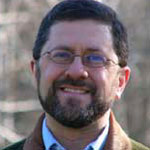
The Resilient Church with Mike Aquilina, offers a fascinating look at the trials and triumphs of the Catholic Church over the past two thousand years. Fast-paced sketches of critical periods in church history give readers perspective on the challenges faced by the church today. Mike Aquilina does not shrink from the realities of the past, including badly behaved leaders and those who betrayed the Lord. Yet he also leaves us all with well-founded hope for the future: God remains faithful in every circumstance and fulfills his promise to remain with his church always. Hosted by Kris McGregor
Also visit Mike’s “Discerning Hearts†page for more audio downloads and information!
Tags: catholic, catholic podcast, catholic prayer, cathollc spirituality
This entry was posted on Friday, August 1st, 2014 at 8:27 am
You can follow any responses to this entry through the RSS 2.0 feed.
The Sunday, Sunday, Sunday Podcast is a reflection on the upcoming Sunday Mass readings presented by LifeTeen.com and hosted by Mark Hart.
Sunday Readings from the USCCB
Reading 1 Â IS 55:1-3
Responsorial Psalm   PS 145:8-9, 15-16, 17-18
Reading 2 Â ROM 8:35, 37-39
Gospel   MT 14:13-21
When Jesus heard of the death of John the Baptist,
he withdrew in a boat to a deserted place by himself.
The crowds heard of this and followed him on foot from their towns.
When he disembarked and saw the vast crowd,
his heart was moved with pity for them, and he cured their sick.
When it was evening, the disciples approached him and said,
“This is a deserted place and it is already late;
dismiss the crowds so that they can go to the villages
and buy food for themselves.â€
Jesus said to them, “There is no need for them to go away;
give them some food yourselves.â€
But they said to him,
“Five loaves and two fish are all we have here.â€
Then he said, “Bring them here to me, â€
and he ordered the crowds to sit down on the grass.
Taking the five loaves and the two fish, and looking up to heaven,
he said the blessing, broke the loaves,
and gave them to the disciples,
who in turn gave them to the crowds.
They all ate and were satisfied,
and they picked up the fragments left over—
twelve wicker baskets full.
Those who ate were about five thousand men,
not counting women and children.
Tags: catholic, catholic podcast, catholic prayer, cathollc spirituality
This entry was posted on Friday, August 1st, 2014 at 8:19 am
You can follow any responses to this entry through the RSS 2.0 feed.
Episode 18 -The Way of Mystery: The Eucharist and Moral Living 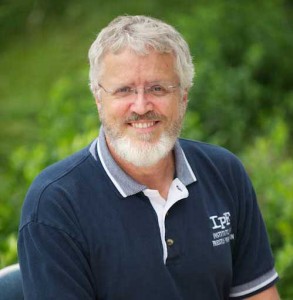
The challenge of living the moral life and the gift of grace from the sacrament of the Eucharist.
[powerpress]
For more episodes in “The Way of Mystery” Series click here
Deacon James Keating, PhD, the director of Theological Formation for the Institute for Priestly Formation, located at Creighton University, in Omaha, is making available to â€Discerning Hearts†and all who listen, his series of programs entitled “The Way of Mysteryâ€.
 The Vatican II documents remind us that the spiritual journey is not made in a vacuum, that God has chosen to save us, not individually, but as The People of God. The Eucharist must help Christians to make their choices by discerning out of Christ’s paschal mystery. For this process to take place, however, Christians must first understand how the Eucharist puts them in touch with Christ’s passion, death, and resurrection, and what concrete implications being in touch with this mystery has for their daily lives.
The Vatican II documents remind us that the spiritual journey is not made in a vacuum, that God has chosen to save us, not individually, but as The People of God. The Eucharist must help Christians to make their choices by discerning out of Christ’s paschal mystery. For this process to take place, however, Christians must first understand how the Eucharist puts them in touch with Christ’s passion, death, and resurrection, and what concrete implications being in touch with this mystery has for their daily lives.
For more information on the “Institute of Priestly Formation†and for other material available by Deacon Keating, just click here
Don’t forget to pickup a copy of “Communion with Christ†, it is one of the best audio sets on prayer…ever!
Check out Deacon Keating’s “Discerning Heart†page
Tags: catholic, catholic podcast, catholic prayer, cathollc spirituality
This entry was posted on Tuesday, July 29th, 2014 at 5:04 pm
You can follow any responses to this entry through the RSS 2.0 feed.
St. Martha is a particular favorite of Msgr. Esseff. He explores the profound experience of friendship that we can have with Jesus. Â Â He shares a poignant personal experience to highlight this point.
1 John Chap 7-16a
Beloved, let us love one another, because love is of God; everyone who loves is begotten by God and knows God.
Whoever is without love does not know God, for God is love.
In this way the love of God was revealed to us: God sent his only Son into the world so that we might have life through him.f
In this is love: not that we have loved God, but that he loved us and sent his Son as expiation for our sins.
Beloved, if God so loved us, we also must love one another.
No one has ever seen God. Yet, if we love one another, God remains in us, and his love is brought to perfection in us.
This is how we know that we remain in him and he in us, that he has given us of his Spirit.
Moreover, we have seen and testify that the Father sent his Son as savior of the world.
Whoever acknowledges that Jesus is the Son of God, God remains in him and he in God.
We have come to know and to believe in the love God has for us.
Gospel JN 11:19-27
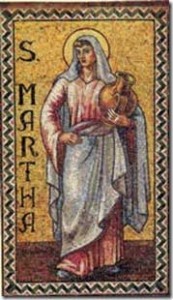
to comfort them about their brother [Lazarus, who had died].
When Martha heard that Jesus was coming,
she went to meet him;
but Mary sat at home.
Martha said to Jesus,
“Lord, if you had been here,
my brother would not have died.
But even now I know that whatever you ask of God,
God will give you.â€
Jesus said to her,
“Your brother will rise.â€
Martha said to him,
“I know he will rise,
in the resurrection on the last day.â€
Jesus told her,
“I am the resurrection and the life;
whoever believes in me, even if he dies, will live,
and anyone who lives and believes in me will never die.
Do you believe this?â€
She said to him, “Yes, Lord.
I have come to believe that you are the Christ, the Son of God,
the one who is coming into the world.â€
Tags: catholic, catholic podcast, catholic prayer, cathollc spirituality
This entry was posted on Tuesday, July 29th, 2014 at 4:58 pm
You can follow any responses to this entry through the RSS 2.0 feed.
 Episode 5Â Praying with Scripture: Christian Contemplation and Mediation in the Ignatian tradition w/Fr. Timothy Gallagher
Episode 5Â Praying with Scripture: Christian Contemplation and Mediation in the Ignatian tradition w/Fr. Timothy Gallagher
Fr. Gallagher continues to discuss the differences and benefits of meditation and contemplation – the cornerstones of Ignatius of Loyola’s spiritual practice.
[powerpress]
For other episodes in the series visit The Discerning Hearts “Praying with Scripture†page
Father Timothy M. Gallagher, O.M.V., was ordained in 1979 as a member of the Oblates of the Virgin Mary, a religious community dedicated to retreats and spiritual formation according to the Spiritual Exercises of St. Ignatius. Â Fr. Gallagher is featured on the EWTN series “Living the Discerning Life: Â The Spiritual Teachings of St. Ignatius of Loyola”.
For more information on how to obtain copies of Fr. Gallaghers’s various books and audio which are available for purchase, please visit  his  website:   frtimothygallagher.org
 For the other episodes in this series check out Fr. Timothy Gallagher’s “Discerning Hearts†page
Tags: catholic, catholic podcast, catholic prayer, cathollc spirituality
This entry was posted on Monday, July 28th, 2014 at 12:38 pm
You can follow any responses to this entry through the RSS 2.0 feed.
Sacramentals
[powerpress]
In the minds of non-Catholics, Catholicism often conjures images of Catholic stuff: candles, crucifixes, rosaries, statues, holy water, oils,
and the like. These are called sacramentals—not to be confused with the seven sacraments, they are material items that the Lord uses as conduits of his blessing.
Because of our belief in sacramentals, Catholics have sometimes been accused of practicing magic. But magic is the pagan or new age belief that an object has power in and of itself. Sacramentals are the Christian belief that the living and true God uses His creation as instruments of grace and healing.
Sacramentals appear all throughout the Scriptures. James speaks of anointing with oil.1 Acts of the Apostles tells us that Paul’s handkerchiefs brought healing power to those they touched.2In the Old Testament, Elisha’s bones were used to bring a dead man back to life.3
And of course the Gospels portray Our Lord himself often using water, mud or even his own spit to perform mighty works of healing and cleansing, a power which Jesus passed on to his priests to be continued to this day.4Â Sacramentals are neither magic nor make believe, but powerful weapons to be utilized in our spiritual journeys.
1 -Â Js. 5:14
2 -Â Acts 19:11-12
3 -Â 2 Kgs. 13:21
4 -Â cf. Mt. 10:7-8; Lk. 10:18-20; Jn. 20:21-23, etc.
Tags: catholic, catholic apologetics, catholic podcast, catholic prayer, cathollc spirituality, sacramentals
This entry was posted on Monday, July 28th, 2014 at 11:56 am
You can follow any responses to this entry through the RSS 2.0 feed.
Dr. Matthew Bunson discusses the life, times and teachings of St. Anslem pt 1
- Born: 1033, Aosta, Italy
- Died: April 21, 1109, Canterbury, United Kingdom
- Full name:Â Anselmo d’Aosta
- Books: Proslogion, More
From Vatican.va, an excerpt from the teachings of Pope Benedict XVI General Audience 2009
He is also known as Anselm of Bec and Anselm of Canterbury because of the cities with which he was associated. Who is this figure to whom three places, distant from one another and located in three different nations Italy, France, England feel particularly bound? A monk with an intense spiritual life, an excellent teacher of the young, a theologian with an extraordinary capacity for speculation, a wise man of governance and an intransigent defender of libertas Ecclesiae, of the Church’s freedom, Anselm is one of the eminent figures of the Middle Ages who was able to harmonize all these qualities, thanks to the profound mystical experience that always guided his thought and his action.
St Anselm was born in 1033 (or at the beginning of 1034) in Aosta, the first child of a noble family. His father was a coarse man dedicated to the pleasures of life who squandered his possessions. On the other hand, Anselm’s mother was a profoundly religious woman of high moral standing (cf. Eadmer, Vita Sancti Anselmi, PL 159, col. 49). It was she, his mother, who saw to the first human and religious formation of her son whom she subsequently entrusted to the Benedictines at a priory in Aosta. Anselm, who since childhood as his biographer recounts imagined that the good Lord dwelled among the towering, snow-capped peaks of the Alps, dreamed one night that he had been invited to this splendid kingdom by God himself, who had a long and affable conversation with him and then gave him to eat “a very white bread roll” (ibid., col. 51). This dream left him with the conviction that he was called to carry out a lofty mission. At the age of 15, he asked to be admitted to the Benedictine Order but his father brought the full force of his authority to bear against him and did not even give way when his son, seriously ill and feeling close to death, begged for the religious habit as a supreme comfort. After his recovery and the premature death of his mother, Anselm went through a period of moral dissipation. He neglected his studies and, consumed by earthly passions, grew deaf to God’s call. He left home and began to wander through France in search of new experiences. Three years later, having arrived in Normandy, he went to the Benedictine Abbey of Bec, attracted by the fame of Lanfranc of Pavia, the Prior. For him this was a providential meeting, crucial to the rest of his life. Under Lanfranc’s guidance Anselm energetically resumed his studies and it was not long before he became not only the favourite pupil but also the teacher’s confidante. His monastic vocation was rekindled and, after an attentive evaluation, at the age of 27 he entered the monastic order and was ordained a priest. Ascesis and study unfolded new horizons before him, enabling him to rediscover at a far higher level the same familiarity with God which he had had as a child.
When Lanfranc became Abbot of Caen in 1063, Anselm, after barely three years of monastic life, was named Prior of the Monastery of Bec and teacher of the cloister school, showing his gifts as a refined educator. He was not keen on authoritarian methods; he compared young people to small plants that develop better if they are not enclosed in greenhouses and granted them a “healthy” freedom. He was very demanding with himself and with others in monastic observance, but rather than imposing his discipline he strove to have it followed by persuasion. Upon the death of Abbot Herluin, the founder of the Abbey of Bec, Anselm was unanimously elected to succeed him; it was February 1079. In the meantime numerous monks had been summoned to Canterbury to bring to their brethren on the other side of the Channel the renewal that was being brought about on the continent. Their work was so well received that Lanfranc of Pavia, Abbot of Caen, became the new Archbishop of Canterbury. He asked Anselm to spend a certain period with him in order to instruct the monks and to help him in the difficult plight in which his ecclesiastical community had been left after the Norman conquest. Anselm’s stay turned out to be very fruitful; he won such popularity and esteem that when Lanfranc died he was chosen to succeed him in the archiepiscopal See of Canterbury. He received his solemn episcopal consecration in December 1093.
For more visit Vatican.va
Dr. Matthew Bunson, Senior Fellow of the St. Paul Center for Biblical Theology, is one of the United States’ leading authorities on the papacy and the Church.
His books include: The Encyclopedia of Catholic History; The Encyclopedia of Saints; Papal Wisdom; All Shall Be Well; Encyclopedia of the Roman Empire; and The Angelic Doctor: The Life and World of St. Thomas Aquinas; The Pope Encyclopedia; We Have a Pope! Benedict XVI, the first Catholic biography of the Holy Father in the English language; the Encyclopedia of U.S. Catholic History; Pope Francis. His also the editor of OSV’s “The Catholic Answer” magazine.
Tags: catholic, catholic podcast, catholic prayer, cathollc spirituality
This entry was posted on Friday, July 25th, 2014 at 6:18 am
You can follow any responses to this entry through the RSS 2.0 feed.
The Sunday, Sunday, Sunday Podcast is a reflection on the upcoming Sunday Mass readings presented by LifeTeen.com and hosted by Mark Hart.
Sunday Readings from the USCCB
Reading 1 Â 1 KGS 3:5, 7-12
Responsorial Psalm   PS 119:57, 72, 76-77, 127-128, 129-130
Reading 2 Â ROM 8:28-30
Gospel   MT 13:44-52
Jesus said to his disciples:
“The kingdom of heaven is like a treasure buried in a field,
which a person finds and hides again,
and out of joy goes and sells all that he has and buys that field.
Again, the kingdom of heaven is like a merchant
searching for fine pearls.
When he finds a pearl of great price,
he goes and sells all that he has and buys it.
Again, the kingdom of heaven is like a net thrown into the sea,
which collects fish of every kind.
When it is full they haul it ashore
and sit down to put what is good into buckets.
What is bad they throw away.
Thus it will be at the end of the age.
The angels will go out and separate the wicked from the righteous
and throw them into the fiery furnace,
where there will be wailing and grinding of teeth.
“Do you understand all these things?â€
They answered, “Yes.â€
And he replied,
“Then every scribe who has been instructed in the kingdom of heaven
is like the head of a household
who brings from his storeroom both the new and the old.â€
Tags: catholic, catholic podcast, catholic prayer, cathollc spirituality
This entry was posted on Friday, July 25th, 2014 at 5:42 am
You can follow any responses to this entry through the RSS 2.0 feed.
Episode 1 –  What is Christian Apologetics? Who was St. Thomas Aquinas, his life, his times, and his contribution. What is “theology”? What is the “Summa”?
What is Christian Apologetics? Who was St. Thomas Aquinas, his life, his times, and his contribution. What is “theology”? What is the “Summa”?
[powerpress]
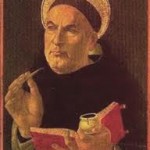 Question 1. article 1Â The nature and extent of sacred doctrine
Question 1. article 1Â The nature and extent of sacred doctrine
Whether, besides philosophy, any further doctrine is required?
Objection 1: It seems that, besides philosophical science, we have no need of any further knowledge. For man should not seek to know what is above reason: “Seek not the things that are too high for thee” (Ecclus. 3:22). But whatever is not above reason is fully treated of in philosophical science. Therefore any other knowledge besides philosophical science is superfluous.
Objection 2: Further, knowledge can be concerned only with being, for nothing can be known, save what is true; and all that is, is true. But everything that is, is treated of in philosophical science—even God Himself; so that there is a part of philosophy called theology, or the divine science, as Aristotle has proved (Metaph. vi). Therefore, besides philosophical science, there is no need of any further knowledge.
On the contrary, It is written (2 Tim. 3:16): “All Scripture, inspired of God is profitable to teach, to reprove, to correct, to instruct in justice.” Now Scripture, inspired of God, is no part of philosophical science, which has been built up by human reason. Therefore it is useful that besides philosophical science, there should be other knowledge, i.e. inspired of God.
I answer that, It was necessary for man’s salvation that there should be a knowledge revealed by God besides philosophical science built up by human reason. Firstly, indeed, because man is directed to God, as to an end that surpasses the grasp of his reason: “The eye hath not seen, O God, besides Thee, what things Thou hast prepared for them that wait for Thee” (Is. 66:4). But the end must first be known by men who are to direct their thoughts and actions to the end. Hence it was necessary for the salvation of man that certain truths which exceed human reason should be made known to him by divine revelation. Even as regards those truths about God which human reason could have discovered, it was necessary that man should be taught by a divine revelation; because the truth about God such as reason could discover, would only be known by a few, and that after a long time, and with the admixture of many errors. Whereas man’s whole salvation, which is in God, depends upon the knowledge of this truth. Therefore, in order that the salvation of men might be brought about more fitly and more surely, it was necessary that they should be taught divine truths by divine revelation. It was therefore necessary that besides philosophical science built up by reason, there should be a sacred science learned through revelation.
Reply to Objection 1: Although those things which are beyond man’s knowledge may not be sought for by man through his reason, nevertheless, once they are revealed by God, they must be accepted by faith. Hence the sacred text continues, “For many things are shown to thee above the understanding of man” (Ecclus. 3:25). And in this, the sacred science consists.
Reply to Objection 2: Sciences are differentiated according to the various means through which knowledge is obtained. For the astronomer and the physicist both may prove the same conclusion: that the earth, for instance, is round: the astronomer by means of mathematics (i.e. abstracting from matter), but the physicist by means of matter itself. Hence there is no reason why those things which may be learned from philosophical science, so far as they can be known by natural reason, may not also be taught us by another science so far as they fall within revelation. Hence theology included in sacred doctrine differs in kind from that theology which is part of philosophy.
For an online version of St. Thomas Aquinas’ “Summa” click here
“Christian Apologetics with Dr. R. R. Reno” explores numerous facets of faith and reason in the life of the Church and the world. Grounded on the work of giants, such as St. Thomas Aquinas, St. Bonaventure, Blessed John Newman, soon-to-be Blessed John Paul II, G. K. Chesterton, Blaise Paschal and Stephen Barr, Dr. Reno helps us to open our minds to make the journey to our hearts.
R. R. Reno is the editor at First Things: A Journal of Religion, Culture, and Public Life, and Professor of Theology, currently on leave from Creighton University. His theological work has been published in many academic journals. Essays and opinion pieces on religion, public life, contemporary culture, and current events have appeared in Commentary, and the Washington Post. In Fighting the Noonday Devil Reno suggests that putting ourselves at the disposal of what is real is what trains us for true piety. His other recent books include Genesis: Brazos Theological Commentary on the Bible and Sanctified Vision: An Introduction to Early Christian Interpretation of the Bible.
Tags: catholic, catholic podcast, catholic prayer, cathollc spirituality
This entry was posted on Thursday, July 24th, 2014 at 6:33 am
You can follow any responses to this entry through the RSS 2.0 feed.
Msgr. Esseff shares with us the great leagacy of prayer and reform left to us by St Charbel Makhluf  St Nimatullah Youssef Kassab Al-Hardini (1808-1858) powerful saints for our times.
Reading 1 Â JER 2:1-3, 7-8, 12-13
This word of the LORD came to me:
Go, cry out this message for Jerusalem to hear!
I remember the devotion of your youth,
how you loved me as a bride,
Following me in the desert,
in a land unsown.
Sacred to the LORD was Israel,
the first fruits of his harvest;
Should any presume to partake of them,
evil would befall them, says the LORD.
When I brought you into the garden land
to eat its goodly fruits,
You entered and defiled my land,
you made my heritage loathsome.
The priests asked not,
“Where is the LORD?â€
Those who dealt with the law knew me not:
the shepherds rebelled against me.
The prophets prophesied by Baal,
and went after useless idols.
Be amazed at this, O heavens,
and shudder with sheer horror, says the LORD.
Two evils have my people done:
they have forsaken me, the source of living waters;
They have dug themselves cisterns,
broken cisterns, that hold no water.
Tags: catholic, catholic podcast, catholic prayer, cathollc spirituality
This entry was posted on Thursday, July 24th, 2014 at 6:32 am
You can follow any responses to this entry through the RSS 2.0 feed.
Episode 3 – Heresy and Orthodoxy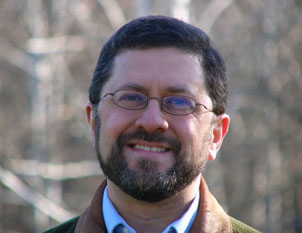
[powerpress]
The Resilient Church with Mike Aquilina, offers a fascinating look at the trials and triumphs of the Catholic Church over the past two thousand years. Fast-paced sketches of critical periods in church history give readers perspective on the challenges faced by the church today. Mike Aquilina does not shrink from the realities of the past, including badly behaved leaders and those who betrayed the Lord. Yet he also leaves us all with well-founded hope for the future: God remains faithful in every circumstance and fulfills his promise to remain with his church always.
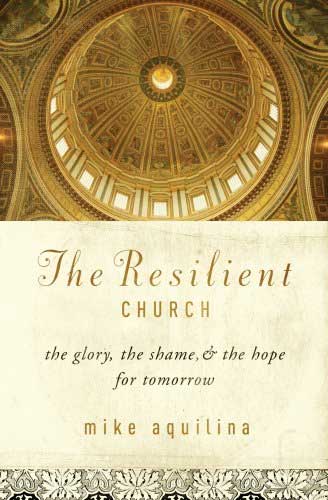 Pick up a copy of Mke’s book. You’ll find so much more and invaluable references and resoources, as well
Pick up a copy of Mke’s book. You’ll find so much more and invaluable references and resoources, as well
Also visit Mike’s “Discerning Hearts†page for more audio downloads and information!
Tags: catholic, catholic podcast, catholic prayer, cathollc spirituality
This entry was posted on Thursday, July 24th, 2014 at 6:22 am
You can follow any responses to this entry through the RSS 2.0 feed.
Episode 17Â -The Way of Mystery: The Eucharist and Moral Living 
Mystical experiences and consoling prayer. Prayer is earnestly desired, because it is something we delight in. Also the prayer that will spontaneously occur. Another type of experience is the aspect of the sacramental encounter.
[powerpress]
For more episodes in “The Way of Mystery” Series click here
Deacon James Keating, PhD, the director of Theological Formation for the Institute for Priestly Formation, located at Creighton University, in Omaha, is making available to â€Discerning Hearts†and all who listen, his series of programs entitled “The Way of Mysteryâ€.
 The Vatican II documents remind us that the spiritual journey is not made in a vacuum, that God has chosen to save us, not individually, but as The People of God. The Eucharist must help Christians to make their choices by discerning out of Christ’s paschal mystery. For this process to take place, however, Christians must first understand how the Eucharist puts them in touch with Christ’s passion, death, and resurrection, and what concrete implications being in touch with this mystery has for their daily lives.
The Vatican II documents remind us that the spiritual journey is not made in a vacuum, that God has chosen to save us, not individually, but as The People of God. The Eucharist must help Christians to make their choices by discerning out of Christ’s paschal mystery. For this process to take place, however, Christians must first understand how the Eucharist puts them in touch with Christ’s passion, death, and resurrection, and what concrete implications being in touch with this mystery has for their daily lives.
For more information on the “Institute of Priestly Formation†and for other material available by Deacon Keating, just click here
Don’t forget to pickup a copy of “Communion with Christ†, it is one of the best audio sets on prayer…ever!
Check out Deacon Keating’s “Discerning Heart†page
Tags: catholic, catholic podcast, catholic prayer, cathollc spirituality
This entry was posted on Wednesday, July 23rd, 2014 at 3:35 pm
You can follow any responses to this entry through the RSS 2.0 feed.
Once again, Teresa Monaghen brings a saint, who lived over 600 years ago, to vivid life and connects 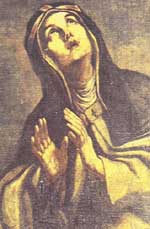 them into our modern day circumstances. Â St. Bridget of Sweden was an ordinary woman who was open to receiving extraordinary grace because of her great love for Christ. Â Teresa tells the remarkable story with joy and enthusiasm.
them into our modern day circumstances. Â St. Bridget of Sweden was an ordinary woman who was open to receiving extraordinary grace because of her great love for Christ. Â Teresa tells the remarkable story with joy and enthusiasm.
For the 15 prayers of St. Bridget click here
For more on her life and teachings, check out this teaching from Pope Benedict XVI
From the teachings of Blessed Pope John Paul II:
4. The first of these three great figures, Bridget, was born of an aristocratic family in 1303 at Finsta, in the Swedish region of Uppland. She is known above all as a mystic and the foundress of the Order of the Most Holy Saviour. Yet it must not be forgotten that the first part of her life was that of a lay woman happily married to a devout Christian man to whom she bore eight children. In naming her a Co-Patroness of Europe, I would hope that not only those who have received a vocation to the consecrated life but also those called to the ordinary occupations of the life of the
laity in the world, and especially to the high and demanding vocation of forming a Christian family, will feel that she is close to them. Without abandoning the comfortable condition of her social status, she and her husband Ulf enjoyed a married life in which conjugal love was joined to intense prayer, the study of Sacred Scripture, mortification and charitable works. Together they founded a small hospital, where they often attended the sick. Bridget was in the habit of serving the poor personally. At the same time, she was appreciated for her gifts as a teacher, which she was able to use when she was required to serve at Court in Stockholm. This experience was the basis of the counsel which she would later give from time to time to princes and rulers concerning the proper fulfilment of their duties. But obviously the first to benefit from these counsels were her children, and it is not by chance that one of her daughters, Catherine, is venerated as a Saint.
But this period of family life was only a first step. The pilgrimage which she made with her husband Ulf to Santiago de Compostela in 1341 symbolically brought this time to a close and prepared her for the new life which began a few years later at the death of her husband. It was then that Bridget recognized the voice of Christ entrusting her with a new mission and guiding her step by step by a series of extraordinary mystical graces. (more…)
Tags: catholic, catholic podcast, catholic prayer, cathollc spirituality, Church, joy, love, Sweden, teresa monaghen
This entry was posted on Wednesday, July 23rd, 2014 at 5:59 am
You can follow any responses to this entry through the RSS 2.0 feed.

